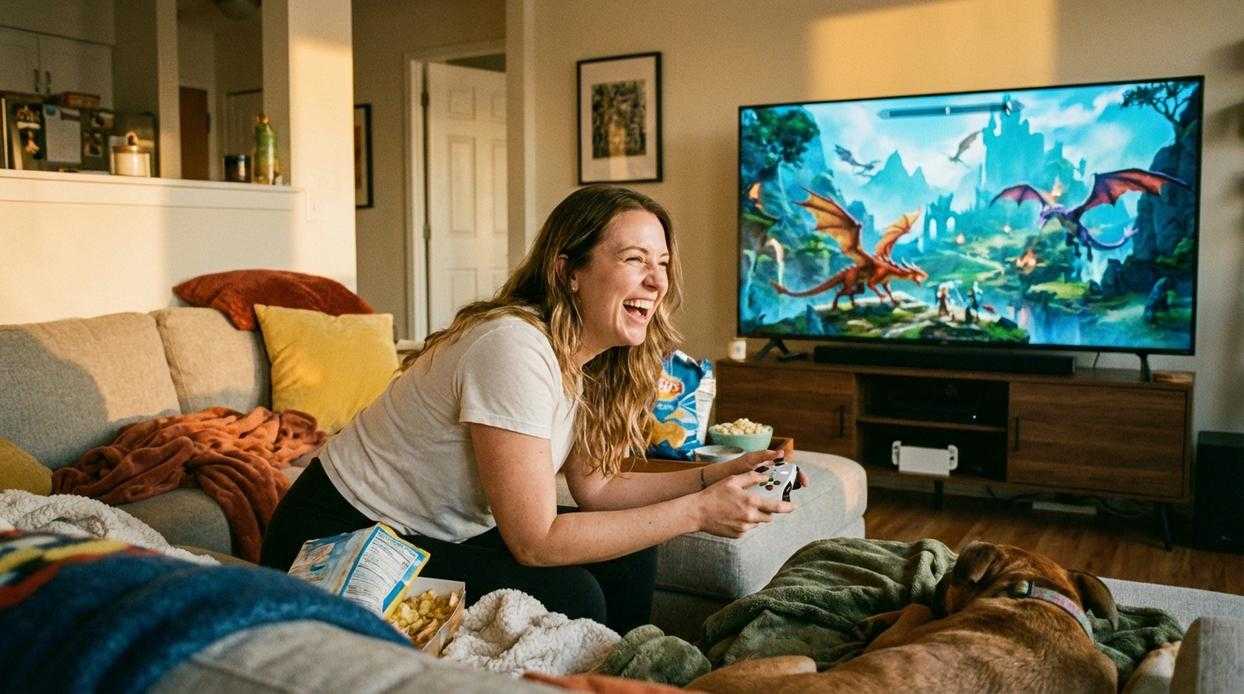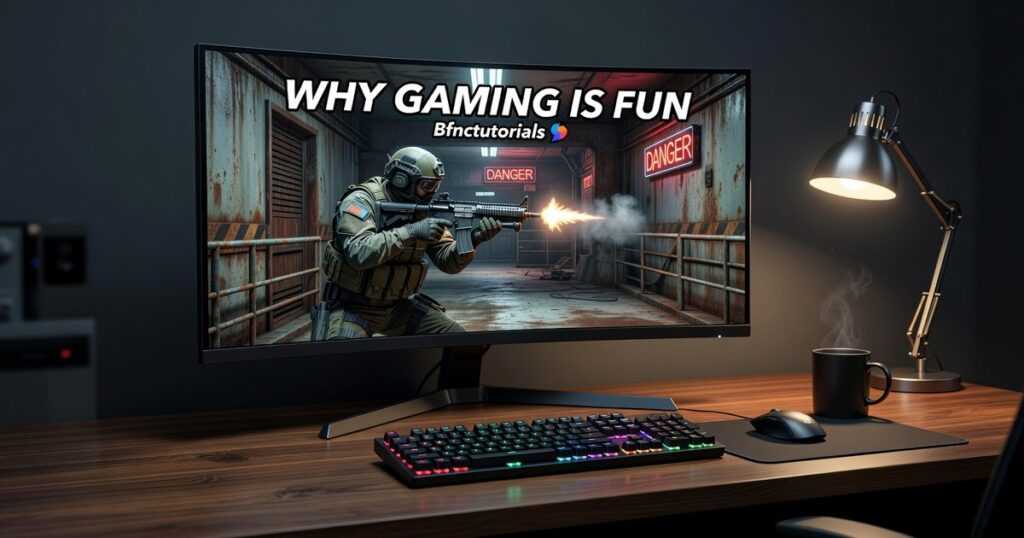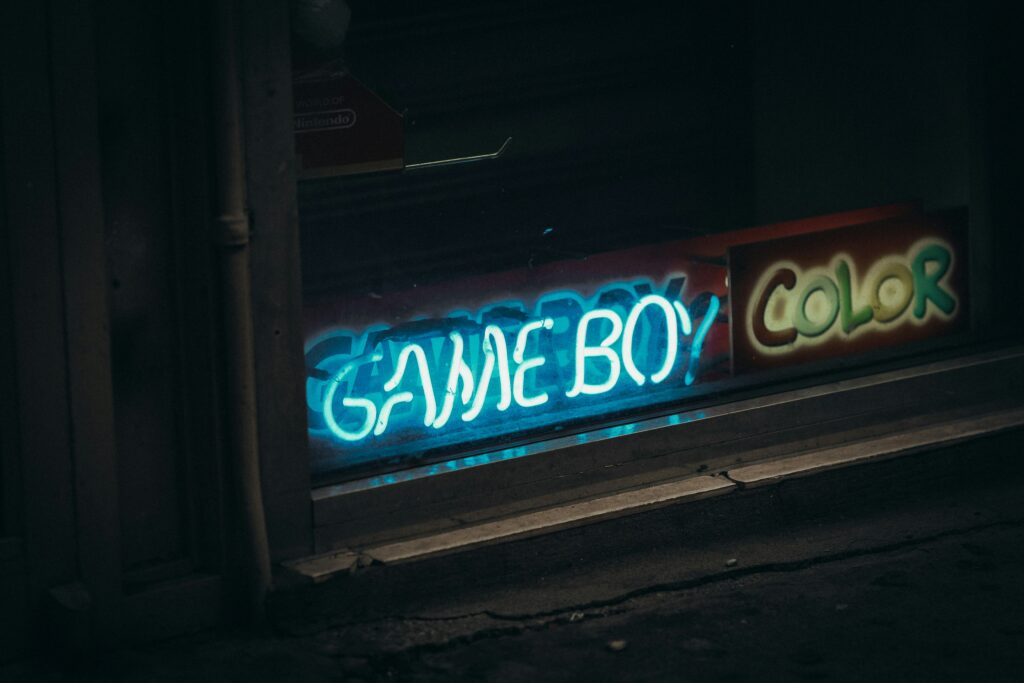I’ve spent years watching people try to explain why they love gaming and fail every time.
You’re either here because someone asked you why you spend so much time playing games and you couldn’t give them a real answer. Or you’re trying to understand why the people in your life care so much about pixels on a screen.
Here’s the thing: most gamers know what feels good but can’t break down why it feels good. And that gap makes it hard to defend your hobby or understand someone else’s.
Why gaming is fun comes down to specific psychological triggers that game designers have been refining for decades. It’s not magic. It’s science.
I’ve analyzed mechanics across hundreds of games and tracked what keeps players coming back. The patterns are clear once you know what to look for.
This tutorial breaks down the actual reasons games hook us. I’ll show you the psychological drivers, the social elements, and the narrative structures that make gaming work.
We’ve studied player behavior across every major genre at bfnctutorials. We know which mechanics create genuine engagement and which ones just waste your time.
You’ll learn the framework behind gaming enjoyment. Not opinion pieces about why games are art. The real components that make a game stick in your brain.
No fluff about gaming culture. Just the core reasons why pressing buttons on a controller can be one of the most satisfying things you do all day.
The Player’s Brain: The Psychology of Challenge and Reward
You know that feeling when you’re three hours into a game and you can’t put the controller down?
There’s actual science behind that.
Your brain isn’t just having fun. It’s getting hit with a carefully designed sequence of psychological triggers that games have perfected over decades.
Let me break down what’s really happening in your head.
The Core Loop
Every good game follows the same basic pattern. You take action, you get a reward, then you face a new challenge. Action to reward to challenge. Then it repeats.
Sounds simple, right?
But this loop taps into something deep in how we’re wired. Your brain craves this cycle because each step gives you a little hit of dopamine. You complete a quest, you level up, now there’s a tougher boss waiting.
It’s why why gaming is fun bfnctutorials exists in the first place. We keep coming back because the loop never really ends.
Mastery Makes You Feel Alive
Here’s where Self-Determination Theory comes in (fancy term, simple idea).
Humans need three things to feel satisfied. We need to feel competent at something. We need autonomy over our choices. And we need to feel connected to others.
Games nail the first two every time.
When you finally beat that boss you’ve died to fifteen times? That’s pure competence. Your brain lights up because you’ve proven you can master something difficult. You got better through practice and that matters more than most people realize.
The Loot Drop That Keeps You Hunting
Now some people say games manipulate you with random rewards. They compare it to gambling and claim it’s all just psychological tricks.
Fair point. Variable reward schedules are powerful.
But here’s the difference. Slot machines are pure chance. Games tie those unpredictable rewards to skill. You still have to beat the raid to get a shot at that rare drop. You still have to perform.
That combination of skill plus chance? It’s what keeps you running one more dungeon at 2 AM.
Flow State Is the Secret Sauce
Ever lose track of time completely while playing?
That’s flow. Complete immersion where nothing else exists except you and the game.
Psychologist Mihaly Csikszentmihalyi defined it as the sweet spot between boredom and anxiety. The challenge has to match your skill level almost perfectly.
Too easy and you zone out. Too hard and you quit in frustration.
Great games adjust difficulty on the fly to keep you in that zone as long as possible. They’re basically flow state machines designed to keep your brain fully engaged without overwhelming it.
More Than a Game: Finding Connection and Community
I’ll be honest with you.
The best gaming moments I’ve had weren’t about graphics or gameplay mechanics. They were about the people sitting next to me (or halfway across the world) when something clicked.
Some people think gaming is isolating. They see someone with a headset on and assume they’re tuning out the world. That they’re choosing pixels over real human connection.
But that’s not what’s actually happening.
When I’m running a raid with my crew at 2 AM, we’re not just pressing buttons. We’re coordinating. Communicating. Sometimes arguing about the best strategy to take down a boss that’s wiped us six times already.
That’s real connection.
Games have become our digital campfires. Instead of gathering around flames to share stories, we’re dropping into Discord channels and party chats. The medium changed but the need didn’t.
I’ve watched friendships form over shared failures in co-op games. I’ve seen families bond over competitive matches where trash talk is just another love language. There’s something about working together to solve a problem that brings people closer than small talk ever could.
And the communities? They’re massive.
You can find your people no matter what you’re into. Forums and fan groups give you instant access to thousands who get why gaming is fun bfnctutorials in ways your non-gaming friends might not.
Then there’s esports. Watching pros compete scratches the same itch as traditional sports but with mechanics most of us can actually try ourselves. You see a sick play and think “I could learn that” instead of “I’ll never dunk like LeBron.”
The collaborative problem solving hits different too. When your team finally beats that impossible encounter after hours of attempts, the celebration feels earned in a way solo victories never do.
The Holodeck at Home: Immersion, Narrative, and Escapism

You know what nobody talks about enough?
The fact that gaming is the closest thing we have to actual magic.
I’m serious. You press a button and suddenly you’re somewhere else entirely. Not just watching it happen. Actually there.
Some critics say gaming is just escapism for people who can’t handle reality. That it’s a waste of time compared to “productive” hobbies. And sure, I’ve heard that argument a thousand times.
But here’s where they’re wrong.
Not all escapism is created equal. There’s a big difference between mindlessly scrolling social media and actively engaging with a story where your choices matter.
Why Interactive Stories Hit Different
When I pick up a controller, I’m not just consuming content. I’m making decisions that shape what happens next.
Books and movies? They’re great. But the story unfolds the same way every time. In games, I get to be the one steering the ship. Sometimes I’m the hero. Sometimes I make choices I’d never make in real life just to see what happens.
That agency changes everything. It’s why I remember the ending of Mass Effect 3 more vividly than most movies I’ve seen this year (and yes, I’m still not over it).
The connection runs deeper when you’re the one pulling the trigger or choosing which character lives or dies.
Worlds Worth Getting Lost In
I’ve spent hours just wandering around in games. No objectives. No missions. Just exploring.
There’s something about discovering a hidden valley in Skyrim or stumbling onto a secret area in Elden Ring that hits different than any guided tour. You’re not following a path someone laid out. You’re finding your own way.
And honestly? That’s part of why gaming is fun bfnctutorials exists. Because these worlds are worth talking about and understanding better.
Whether it’s a fantasy kingdom or some distant galaxy, good world-building makes you want to see what’s around the next corner. It’s the same feeling explorers must have had centuries ago, except nobody’s getting scurvy.
Trying On Different Lives
Here’s something I appreciate about games that I don’t talk about enough.
They let me be someone else for a while. Not in a fake way. In a way that actually teaches me something about myself.
Want to see if you’d really be brave in a crisis? Play a survival horror game. Curious if you’d make tough moral choices? Try The Walking Dead series.
Games give you a safe space to experiment. To fail without real consequences. To make choices you’d never make in your actual life and see how they play out.
That’s not running away from reality. That’s exploring it from angles you’d never get otherwise.
The Smart Way to Unplug
Look, I work hard. You probably do too.
When I’m done for the day, my brain needs to shift gears. Some people watch TV. Some read. I game.
The difference? Gaming actually requires me to think and react. It’s structured. It has goals and challenges. It’s not passive consumption.
After a rough day, loading into a game world gives me something to focus on that isn’t work or bills or whatever else is stressing me out. It’s recharging, not checking out.
And if you’re trying to figure out which gaming console should i buy bfnctutorials has you covered on that front.
The point is this. Gaming isn’t about avoiding life. It’s about experiencing more of it in ways that wouldn’t otherwise be possible.
That’s not escapism. That’s expansion.
Tutorial: How to Find the Games You’ll Enjoy Most
You ever buy a game everyone raves about and then just… not feel it?
Happens all the time.
The problem isn’t the game. It’s that you’re playing something that doesn’t match what actually makes gaming fun for you.
Let me break this down.
Step 1: Figure Out Your Fun Driver
Before you spend another dollar, ask yourself this. What pulls you into a game?
Is it beating other players? Hanging out with friends online? Getting lost in a story? Building something from scratch?
Be real with yourself here. Don’t pick what sounds cool. Pick what you actually do when no one’s watching.
Step 2: Match It to a Genre
Once you know your driver, finding games gets way easier.
Competition types should look at fighting games or MOBAs. Storytelling fans? RPGs and adventure games are your home. If you’re all about social connection, MMOs and co-op shooters make sense.
(This is why gaming is fun bfnctutorials exists in the first place. Matching players to the right experiences.)
Step 3: Start with the Good Stuff
Now here’s where people mess up. They pick a random game from their chosen genre and hope for the best.
Instead, look at curated “Best Of” lists for that genre. Start with titles that have proven themselves. Your first experience in a new genre matters more than you think.
Step 4: Pay Attention While You Play
After a few hours, stop and think. What part did you actually enjoy?
Was it the combat system? The character dialogue? Exploring the map? That answer tells you what to look for next time.
For more structured guidance on this process, check out bfnctutorials game guides from befitnatic.
This isn’t complicated. You just need to know what you’re looking for.
Your Personal Gaming Journey
You came here asking a simple question: why is gaming fun?
I’ve given you the answer. It’s not magic or luck. It’s psychology, social connection, and narrative design working together.
The hard part was never enjoying games. It was explaining that enjoyment to others (or even to yourself).
Now you have the vocabulary. You understand the core components that make games tick. You can see the artistry behind the mechanics and make better choices about what you play.
Here’s what you should do next: Pick a genre you’ve never tried before and match it to your fun driver. If you love mastery, try a fighting game. If narrative pulls you in, grab a story-driven RPG. If social connection matters most, jump into an MMO.
Or share this guide with someone who doesn’t get your passion for gaming. Help them see what you see.
Why gaming is fun bfnctutorials breaks down the science and art of what makes games work. You now have the tools to appreciate games on a deeper level and find the experiences that truly resonate with you.
The controller is in your hands. Go play something new. Homepage.



